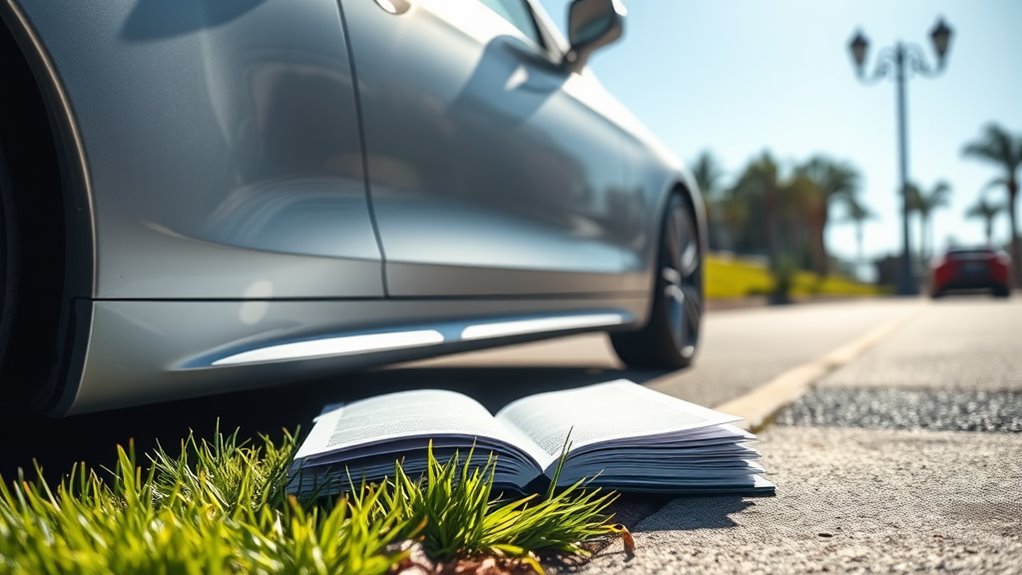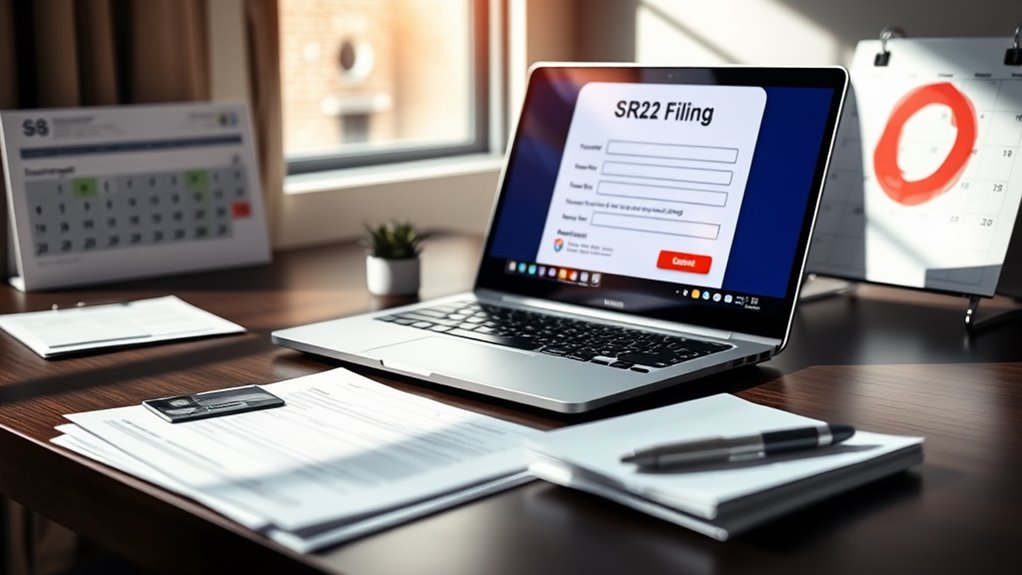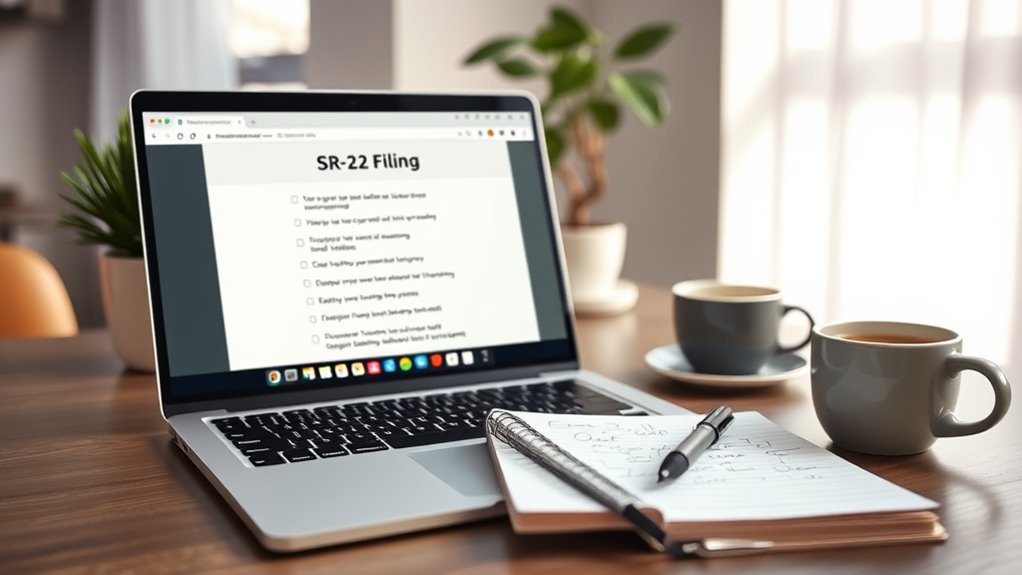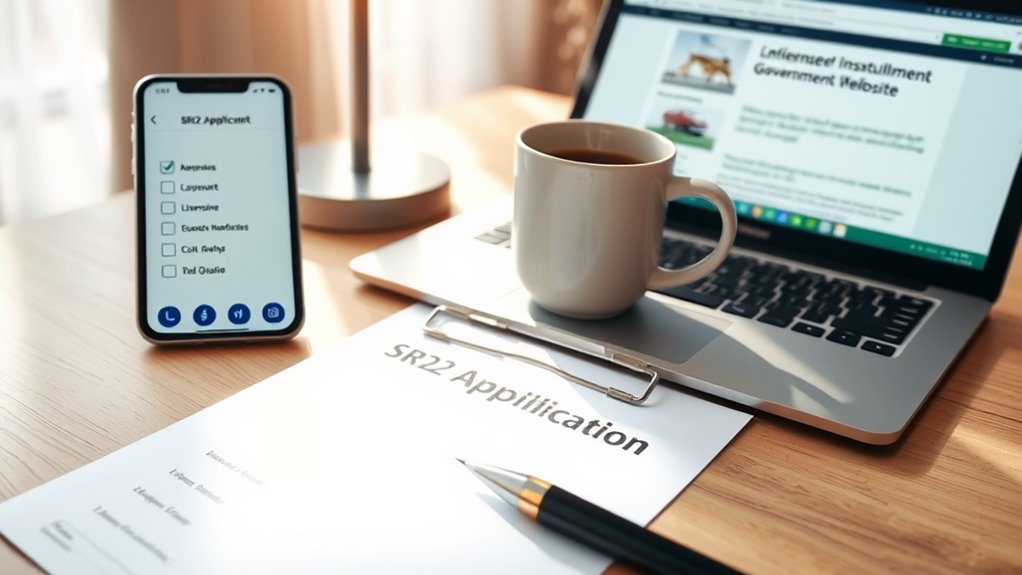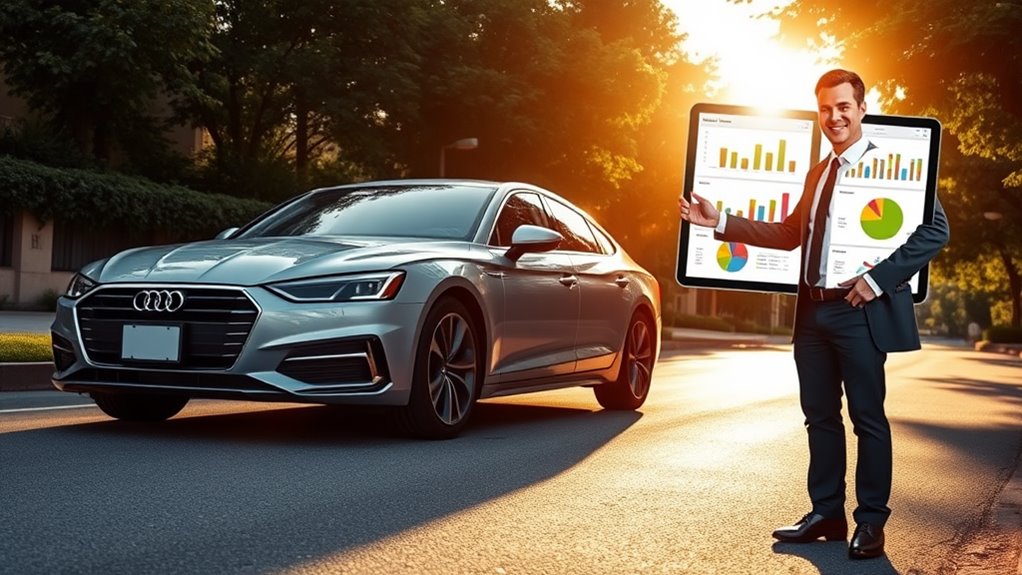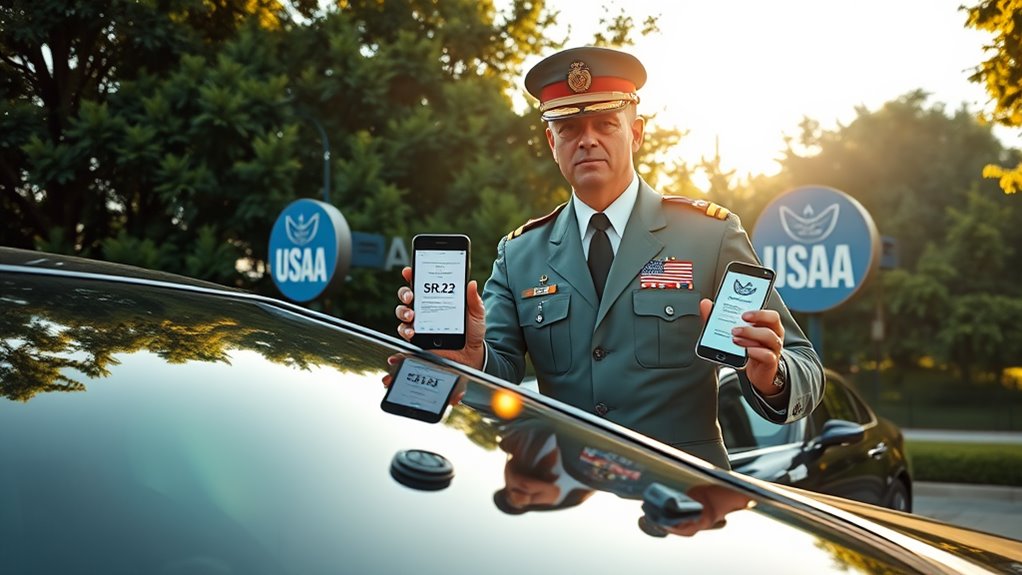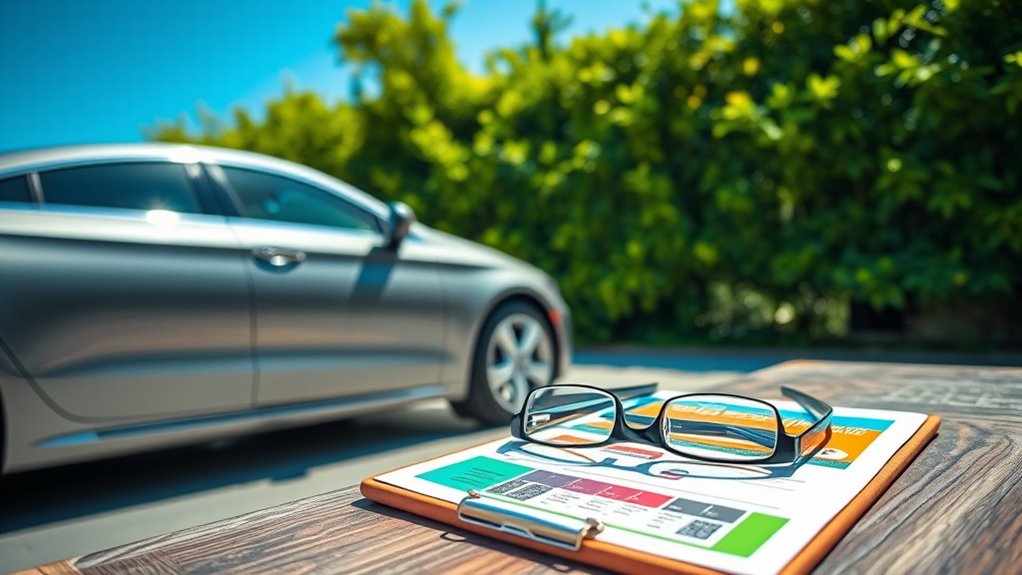Finding affordable SR-22 coverage can feel like maneuvering through a maze, especially when high premiums loom large. However, options exist that balance cost with essential coverage needs. Insurers like Progressive and State Farm offer competitive rates tailored for high-risk drivers. As you explore these choices, you'll discover how each provider meets state requirements while catering to your budget. What follows will guide you through the best options available, ensuring you make an informed decision.
Key Takeaways
- Progressive offers affordable liability-only insurance for non-owner SR-22, with premiums lower than standard car insurance for high-risk drivers.
- Erie Insurance provides competitive rates starting at $35 monthly, ideal for budget-conscious individuals needing essential liability coverage.
- State Farm handles SR-22 filings and offers coverage averaging $50 to $100 monthly, ensuring compliance for drivers after severe violations.
- USAA caters to military personnel with competitive rates around $439 per year, focusing on liability coverage for driving others' vehicles.
- Geico features affordable non-owner SR-22 plans with one-time filing fees and electronic submissions, ensuring compliance with state mandates.
Progressive Non-Owner SR-22 Insurance
When you find yourself needing an SR-22 but don't own a vehicle, Progressive's Non-Owner SR-22 Insurance could be the solution you're looking for. This coverage provides liability-only insurance, ensuring you meet state-mandated minimums for bodily injury and property damage. The SR-22 serves as proof that you have sufficient insurance after serious infractions, like DUI or reckless driving. With a filing fee typically around $25, Progressive's policies are generally more affordable than standard car insurance. However, premiums may rise for high-risk drivers. Some insurers may not offer SR-22 filings for non-owner policies, which is why it's important to confirm eligibility when shopping for coverage. Additionally, non-owner SR-22 insurance is specifically designed for individuals who drive rental cars or other vehicles not registered in their name.
You can easily apply online or via phone, and Progressive's customer support can assist with managing your SR-22 filings and policy conditions. Maintaining coverage is essential to avoid re-filing requirements.
State Farm Non-Owner SR-22 Coverage
If you find yourself needing SR-22 coverage but don't own a vehicle, State Farm's Non-Owner SR-22 Insurance could be a practical choice. This liability-only coverage caters to drivers who need to operate others' cars while complying with state laws following severe violations, such as DUIs.
State Farm provides essential bodily injury and property damage liability coverage, meeting state minimum requirements. Although the average monthly cost ranges from $50 to $100, pricing can be higher than competitors like Geico.
Additionally, State Farm handles SR-22 filings on your behalf, ensuring compliance. However, be aware that this policy lacks extensive or collision coverage, and maintaining it for at least three years is vital to avoid license suspension.
Erie Insurance Non-Owner SR-22 Options
Erie Insurance offers a compelling option for those seeking Non-Owner SR-22 coverage, particularly due to its affordability and solid reputation. With monthly rates starting at just $35, it stands out as a cost-effective choice.
Erie provides essential liability coverage that meets state insurance mandates, making it reliable for those who borrow or rent vehicles. While available in select regions, including 12 states and the District of Columbia, its customer service is frequently praised.
Erie's pricing strategy is competitive, with potential discounts for bundling policies or paying annually. Additionally, maintaining a clean driving record can lead to lower premiums.
USAA Non-Owner SR-22 Insurance for Military
For military personnel and their families, USAA provides a strong option for Non-Owner SR-22 insurance, catering specifically to their unique needs.
Eligible members, including active-duty military and veterans, can benefit from competitive rates averaging around $439 per year.
USAA's non-owner policies primarily focus on liability coverage, ensuring compliance with state requirements while driving someone else's vehicle. The $25 SR-22 filing fee is also reasonable.
Additionally, USAA offers discounts for military members and allows bundling with other insurance policies for extra savings.
Their renowned customer service further enhances the experience, making it easier to navigate SR-22 requirements.
Geico Non-Owner SR-22 Coverage Plans
When you need SR-22 coverage but don't own a vehicle, Geico's Non-Owner SR-22 plans offer a practical solution that focuses on meeting state liability requirements.
This policy type provides essential bodily injury and property damage liability when driving vehicles not owned by you. Generally more affordable than typical SR-22 policies for owned vehicles, it also features a one-time filing fee and electronic submission to the DMV in most states.
Maintaining continuous coverage is crucial to avoid lapses, which can jeopardize your driving privileges. Geico's plans are designed to comply with state-specific mandates, ensuring you meet legal obligations while potentially benefiting from discounts for good driving records.
Nationwide Non-Owner SR-22 Insurance
While Geico's Non-Owner SR-22 coverage caters to specific needs, nationwide options offer broader accessibility for those without vehicle ownership.
To qualify for this insurance, you mustn't own a vehicle or live with someone who does. The average annual cost is around $576, and premiums can vary greatly based on driving history and location.
To be eligible for Geico's Non-Owner SR-22 coverage, you must not own a vehicle or reside with someone who does.
These policies provide essential liability coverage, meeting state minimum requirements, but they don't include collision or extensive coverage. Typically, a one-time SR-22 filing fee of $15 to $25 applies.
It's important to maintain continuous coverage to avoid license suspension, as SR-22 requirements generally last for three years. Comparing quotes from multiple insurers can help you find the most affordable option.
Allstate Non-Owner SR-22 Policy
Although Allstate is a well-known insurer, specific details about its Non-Owner SR-22 policies can be somewhat elusive.
These policies cater to individuals who don't own a vehicle but need to satisfy state insurance requirements. Generally, they cover only liability, excluding collision or extensive coverage, which may result in lower premiums compared to standard SR-22 insurance.
However, they still involve higher costs due to associated risk factors. Applicants must meet criteria such as not living with anyone who owns a vehicle and fulfilling state minimum insurance requirements.
It's important to directly contact Allstate for precise information, as publicly available details on costs and features are limited. The filing fee typically averages around $25, varying by state and insurer.
Farmers Insurance Non-Owner SR-22 Options
Farmers Insurance offers a viable option for those requiring a Non-Owner SR-22 policy, addressing the needs of drivers who don't own a vehicle but must meet state insurance mandates.
This option guarantees minimal liability coverage, allowing you to drive vehicles owned by others legally. Farmers provides a quick filing process, with an electronic notification sent directly to the DMV, making compliance hassle-free.
The low filing fee of $17 is competitive, and there are no additional broker fees. However, it's crucial to note that this policy covers only bodily injury and property damage, not collision or thorough.
If you maintain a clean driving record, you may even see future savings on premiums.
MetLife Non-Owner SR-22 Coverage
MetLife offers a Non-Owner SR-22 coverage option designed for individuals who don't own a vehicle but need to demonstrate financial responsibility to meet state requirements.
This coverage typically includes liability for bodily injury and property damage, adhering to state minimums. While specific details about MetLife's policy are limited, average annual premiums for non-owner SR-22 insurance can be around $576, varying by state.
It's crucial to recognize that this policy doesn't cover vehicle damage or theft. If you're considering MetLife, compare quotes with other insurers, as rates can differ considerably.
This approach guarantees you find the most affordable option that meets your needs, while still complying with state mandates for financial responsibility.
The General Non-Owner SR-22 Insurance
The General provides a viable solution for those seeking Non-Owner SR-22 insurance, catering specifically to individuals who need to fulfill state financial responsibility requirements without owning a vehicle.
The General offers Non-Owner SR-22 insurance, helping individuals meet state requirements without owning a vehicle.
This coverage is ideal for high-risk drivers who frequently borrow cars. Key features include:
- Liability Insurance: Covers bodily injury and property damage.
- Cost-Effectiveness: Generally cheaper than standard SR-22 policies.
- State Compliance: Guarantees you meet minimum state liability requirements.
- Filing Assistance: The General simplifies the SR-22 filing process.
With a focus on specialized services and affordable options, The General helps you maintain driving privileges while guaranteeing compliance with state laws, making it a strong choice for non-owner SR-22 insurance.
Conclusion
In the quest for affordable SR-22 coverage, you've got solid options within reach. Each insurer offers unique benefits tailored to your needs, ensuring you can navigate the road ahead without breaking the bank. Whether you choose Progressive's straightforward process or Erie's budget-friendly rates, you're securing peace of mind. Remember, finding the right coverage is like piecing together a puzzle; with patience and careful consideration, you can create a picture of financial security and compliance that fits your life perfectly.
